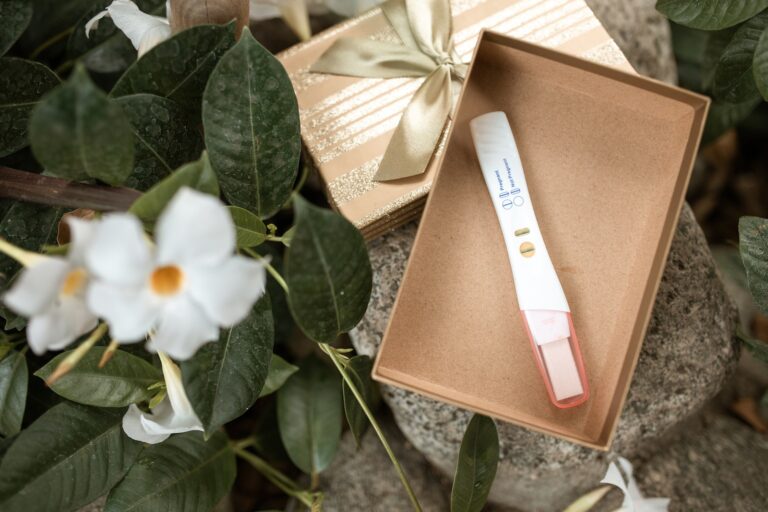If you’re worried about getting pregnant after unprotected sex or a missed period, it’s important to know the best time to take a pregnancy test. For the most accurate results, wait until at least two weeks after sex or your next expected period to take a test.
Pregnancy tests detect hCG, the pregnancy hormone. But hCG isn’t produced until the sperm successfully implant the egg in the uterus, which can take weeks.
How to Take a Pregnancy Test
The best time to take a pregnancy test is on or around your first missed period. However, the exact date of your menstrual cycle will vary from person to person. If you want to be extra sure of your results, consider getting a blood pregnancy test, which is more accurate than a urine test and can detect the presence of the pregnancy hormone hCG up to 21 days prior to your next expected period.
It can be hard to wait to know your results, especially if you recently had unprotected sex or experienced a contraception failure. To avoid taking a test too soon, track how many days it has been since you last had unprotected sex. Some brands of pregnancy tests claim they can give you a result four days before your missed period, but these are more likely to be inaccurate.
If you are concerned about how long it might be before your expected period, visit a Planned Parenthood health center or drugstore to get a rapid-result pregnancy test. These tests can tell you your status within a few hours, but they can be expensive and may not always be accurate. Alternatively, you can use the morning-after pill (also known as emergency contraception) to prevent pregnancy. This form of birth control works up to five days after unprotected sex and is available for free at most pharmacies.
Taking a Home Pregnancy Test
Many women want to know as soon as possible if they’re pregnant. However, for most people, the best time to take a home pregnancy test is after the first day of their missed period. This allows the body to produce enough of the hormone hCG for the test to be accurate.
Pregnancy tests work by measuring a specific hormone, human chorionic gonadotropin (hCG), which is produced in the body when an egg is fertilized by sperm. Typically, the hCG isn’t detectable in the urine until about two weeks after conception. Taking a test earlier could lead to a false negative result, which can happen if the body doesn’t produce enough of the hormone or if the test isn’t used properly.
Most tests are quick, simple, and easy to use, but they still may be a bit intimidating for some women. If you’re nervous about a home test, ask your doctor for advice or visit a local sexual health clinic for a confidential consultation.
If you don’t want to wait to find out if you’re pregnant, consider using an emergency contraceptive that works quickly. The “morning after” pill is one option and can be taken up to five days after unprotected sex. However, it’s important to know that it is not 100% effective.
Taking a Lab Pregnancy Test
If you’re tracking your period, it’s best to wait until the day before your next period is due to take a test for the most accurate results. This is because it takes a few weeks after fertilization for your body to start producing hCG, the pregnancy hormone that most tests look for. However, some tests can detect hCG earlier, but they’re not always reliable.
The earliest that you can get an accurate test result is usually two weeks after unprotected sex, but it may be a little sooner depending on the length of your menstrual cycle. Conception happens around the time of ovulation, which is typically around day 14 or 15 of your cycle. Some pregnancy tests can detect ovulation and hCG in the early days of your menstrual cycle, but these aren’t super reliable and may give you a false negative.
If you’re worried about not knowing whether or not you’re pregnant, consider making an appointment at a Planned Parenthood or family planning clinic to get tested. They have professionals who can answer your questions, offer judgment-free advice, and provide medically accurate information. You can also ask about options like the ELLA or Paragard IUD, which prevent pregnancy up to five days after unprotected sex. The wait can be hard, but you have options to help make the decision that’s right for you.
Taking a Blood Test
The first time you take a pregnancy test may be scary and confusing. It’s important to know the best time to take a test after unprotected sex so you can get an accurate result. Some tests offer the option to take them sooner, but this can lead to a false negative.
Pregnancy tests work by measuring the level of a hormone called human chorionic gonadotropin (hCG), which only appears in your body if you’ve been fertilized by sperm. hCG typically shows up in your urine a week after the sperm fuses with an egg. However, some women have spotting or bleeding early in the first trimester, which can confuse the results of a pregnancy test and make it appear as though they’re not pregnant.
Some pregnancy tests can detect hCG in blood samples rather than urine. These are often more expensive, but they can be more accurate than urine tests. They can also reveal whether the pregnancy is ectopic, which means that the fertilized egg is growing in the fallopian tube instead of inside your uterus.
The way a pregnancy test reads its results depends on the brand you choose. Some use two lines that indicate “pregnant” and one that indicates “not pregnant,” while others have a symbol, color or digital readout to show your results. Whichever you choose, follow the instructions carefully to get the most accurate results.
See Also:



